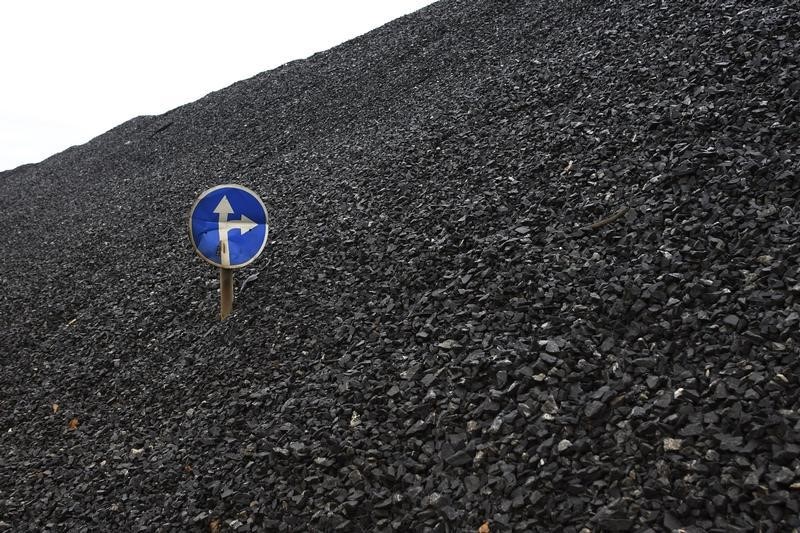By Fergus Jensen
JAKARTA, May 24 (Reuters) - Indonesia will miss coal production targets as the government needs to lean on revenue from the fuel to make up shortfalls from its take from oil and gas output, ensuring the country keeps its top coal exporter status, officials said.
Southeast Asia's largest economy will need to boost coal shipments as revenues from the sector are critical for the government. This will undermine planned coal production curbs seen as crucial to Indonesia's policy of using the fuel as the backbone of its electric power development plans.
Indonesia is targeting a 20 percent increase in non-tax revenues from the mining sector, which includes coal, in 2017 to 32.48 trillion rupiah ($2.44 billion), up from 27.15 trillion rupiah in 2016, to replace declining oil returns, according to Agung Pribadi, director of coal business at the mining ministry.
This target will make it very difficult for the mining ministry to limit output, he said.
"Oil (revenues) have declined, (so) the government needs additional revenues and they also hope for an increase from coal," Pribadi said on the sidelines of a conference last week.
Non-tax revenues from oil and gas roughly halved in 2016 to 44 trillion rupiah ($3.31 billion) from 78.2 trillion rupiah in 2015. That same year, mining revenues were 29.3 trillion rupiah. The coal sector contributes about 80 percent of the mining non-tax revenues.
Growth has slowed in resource-rich Indonesia as exports, investment and citizen's purchasing power have all declined following a plunge in commodity prices. coal production is expected to climb 5 percent in 2017 and 2018 from an estimated 440 million tonnes in 2016, as miners ramp up output due to improved prices. gains are more than the targets of 413 million tonnes for 2017 and 406 million tonnes for 2018 set by the National Development Planning Agency. The agency has set a production cap of 400 million tonnes from 2019 onward in an effort to secure domestic supply.
Indonesia's coal consumption is expected to increase to 101 million tonnes this year from 90.6 million tonnes in 2016, and the government is concerned that Southeast Asia's largest economy could exhaust reserves unless output controls are enforced. ambitious 35 gigawatt power development program, of which around 40 percent is now under construction, is expected to roughly double the country's demand for coal used for power by 2024 to 151 million tonnes from 73.2 million tonnes in 2016, according to state power utility Perusahaan Listrik Negara (PLN).
"Coal ... will be part of the backbone of (Indonesia's) energy sovereignty," said Satry Nugraha, a staff expert to the energy and natural resources minister, at the conference. "On the other hand this country still needs non-tax revenue from the coal industry."
Among other issues complicating efforts to curb coal output, enforcing production and export controls on miners holding permits from provincial governments is proving difficult, Pribadi said.
"These businessmen have exploration permits, and at the same time have rights to produce," said Pribadi. "Once I've completed exploration and I want to increase production no one can stop me, right?"
($1 = 13,300 rupiah)
